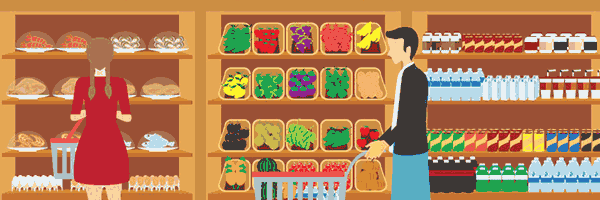Buying food from a Salvage Grocery Store is a great way to save money and has the added benefit of helping to save the environment. Since Salvage Grocers purchase some food items that are at or near their expiration dates, these stores can be “the last stand” for food that might otherwise be thrown away, ending up in a landfill.
When shopping at a Salvage Food Grocer, please use the following guidelines (along with common sense):
- Never buy expired baby formula and baby food at a salvage grocery store. They’re the only only food products on which sell-by dates are regulated by the federal government.
- “Sell-by,” Use-by,” and “Best-by” dates mean different things. Read our article on the differences.
- Frozen foods can still be safe to eat after their sell-by date as long as they’ve been kept frozen. Don’t buy frozen foods whose packages show that the food inside may have melted, then frozen again. For example, in cardboard-carton type packages, food stains on the package or other signs that the package has leaked are evidence that this may have happened. Frozen food that is thawed, then frozen again, gives bacteria a chance to grow.
- Never buy any can of food that looks swollen or has a bulge in it. This may mean that dangerous bacteria are growing inside.
- Don’t buy any can that’s dented along the seams that run along the top or side. The damage may have allowed bacteria to get inside.
- Don’t buy any sealed package that’s torn, has a hole in it, or is coming apart at the seams.
- Don’t buy any can or package that’s leaking. If liquid can drip out, bacteria can get in.
- Don’t buy refrigerated foods that are past the “use-by” or “sell-by” dates, because these foods may be perishable and may have begun to spoil.
- Avoid over-the-counter drugs which have expired. They may lose their potency or undergo an adverse chemical change after expiration.
- Recalled items shouldn’t end up at salvage stores, but it’s good to stay check on recent food recalls just in case.
- If something just doesn’t seem right about a product, ask the store manager if the labels on cans or packages have been changed. If so, the new label might not list the right ingredients or lot numbers. This is especially important if you have a food allergy or other dietary restriction or if a food has been recalled.
If a store appears dirty or you see signs of bug or rodent activity, you probably shouldn’t buy food there.



